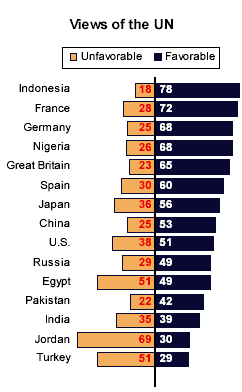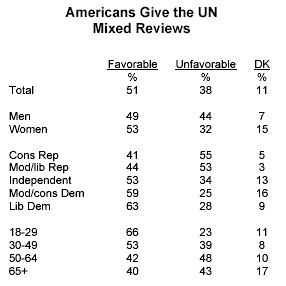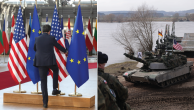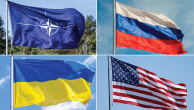by Rich Morin and Richard Wike
When Ban Ki-moon of South Korea placed his left hand on the Charter of the United Nations and was sworn in as its eighth Secretary General, he assumed control of an organization viewed with dramatically varying degrees of respect, skepticism and indifference by the countries of the world, according to surveys conducted by the Pew Global Attitudes Project.
Ban is the first Asian in 35 years to head the United Nations. He replaces Secretary General Kofi Annan at a time when the UN appears poised to embrace major reform in the wake of growing discord between member nations, the oil-for-food scandal involving Iraq, and mounting criticism that its outmoded ways of doing business are not up to the challenges posed by a world riven by political, economic and sectarian divides.
 “The dark night of distrust and disrespect has lasted far too long. We can begin by saying what we mean, and meaning what we say,” Ban told the members at his swearing-in ceremony. “My first priority will be to restore trust. I will seek to act as a harmonizer and bridge-builder.”
“The dark night of distrust and disrespect has lasted far too long. We can begin by saying what we mean, and meaning what we say,” Ban told the members at his swearing-in ceremony. “My first priority will be to restore trust. I will seek to act as a harmonizer and bridge-builder.”
Ban was speaking about divisions of opinion within the UN General Assembly. But he could just as easily have been addressing public concerns about the UN in key member nations, according to surveys in 15 countries conducted in the spring of this year. Overall, majorities in nine countries had a favorable view of the UN. In three countries — all located in the broader Middle East — majorities rated the institution negatively while the reviews were mixed in three others.
Support for the United Nations was highest in Indonesia, where the UN played a key role in relief efforts in the wake of the earthquake and tsunami that devastated parts of that country in December 2004. Nearly eight-in-ten Indonesians (78%) said they held a favorable view of the United Nations while 18% said their view of the organization was unfavorable.
In the other Muslim countries surveyed, however, reviews of the UN were significantly less upbeat. Barely 30% of those interviewed in Jordan held a favorable view while 69% had an unfavorable impression, the highest level of disapproval in any of the 15 countries. Only 29% of Turks had a positive opinion, with just over half (51%) giving the UN negative marks. In Egypt, public opinion was divided: 49% had a favorable view but 51% had an unfavorable view. Slightly more than four-in-ten Pakistanis (42%) had a positive opinion, while 22% disapproved and 36% did not offer an opinion, easily the largest proportion of no opinion responses recorded in any of the surveys.
In neighboring India, a relatively large number of respondents (26%) also expressed no opinion about the United Nations; those expressing a view split nearly evenly, 39% favorable, 35% unfavorable. Elsewhere in Asia, views were more mixed. A 56%-majority held a favorable opinion in Japan, a view shared by a 53%-majority in China.
The publics of key U.S. allies in Western Europe were broadly favorable toward the UN, the surveys revealed. Large majorities in France (72%), Germany (68%), Great Britain (65%) and Spain (60%) said they had a positive view of the organization.
Russian views of the UN, however, have dimmed over time. In 1991, with the Iron Curtain gone and the Soviet Union crumbling, Russians embraced the UN: Fully 80% rated the institution favorably. By 2004, only 60% held a positive view, and today just under half (49%) say they have a favorable impression.
In Africa, about two-in-three Nigerians (68%) expressed a positive opinion of the United Nations. As is the case with many issues in Nigeria, views about the UN split sharply along religious lines — more than eight-in-ten (82%) Nigerians Christians held a positive view, compared with only 53% of Muslims.
Mixed View in the United States
 American public opinion about the United Nations is divided, although still generally positive. Fifty-one percent of those interviewed in the U.S. expressed a favorable view while 38% had an unfavorable impression. American views of the UN have grown more negative in recent years — throughout the 1990s, large majorities said they had a favorable opinion of the institution, and in September 2001, just before the 9/11 attacks, a record-high 77% gave the UN positive marks. By March 2004, however, only 55% held a favorable view.
American public opinion about the United Nations is divided, although still generally positive. Fifty-one percent of those interviewed in the U.S. expressed a favorable view while 38% had an unfavorable impression. American views of the UN have grown more negative in recent years — throughout the 1990s, large majorities said they had a favorable opinion of the institution, and in September 2001, just before the 9/11 attacks, a record-high 77% gave the UN positive marks. By March 2004, however, only 55% held a favorable view.
Support for the UN breaks down in expected ways along partisan and ideological lines, with Democrats and political liberals the most favorable and Republicans and conservatives the most disapproving. A majority of conservative Republicans (55%) expressed disapproval of the UN while an even larger majority of liberal Democrats (63%) expressed support.
Two-in-three people under the age of 30 had a positive view of the UN while opinion among those 50 and older was divided. A slight gender gap emerges on this issue — men are roughly divided between those with a positive (49%) and a negative (44%) opinion of the UN, while women see the institution favorably (53% favorable, 32% unfavorable).
 The survey also found that Americans with a favorable attitude toward the United Nations expressed significantly more positive views of other countries than those who held anti-UN sentiments. For example, two-thirds of those with a favorable view of the UN also had a positive view of China, compared with 41 percent of those with a negative attitude toward the United Nations. And the gap in views about France is even larger: 68% of those with a positive view of the UN also see France in a positive light, compared with only 35% of those who hold a negative view of the UN.
The survey also found that Americans with a favorable attitude toward the United Nations expressed significantly more positive views of other countries than those who held anti-UN sentiments. For example, two-thirds of those with a favorable view of the UN also had a positive view of China, compared with 41 percent of those with a negative attitude toward the United Nations. And the gap in views about France is even larger: 68% of those with a positive view of the UN also see France in a positive light, compared with only 35% of those who hold a negative view of the UN.




